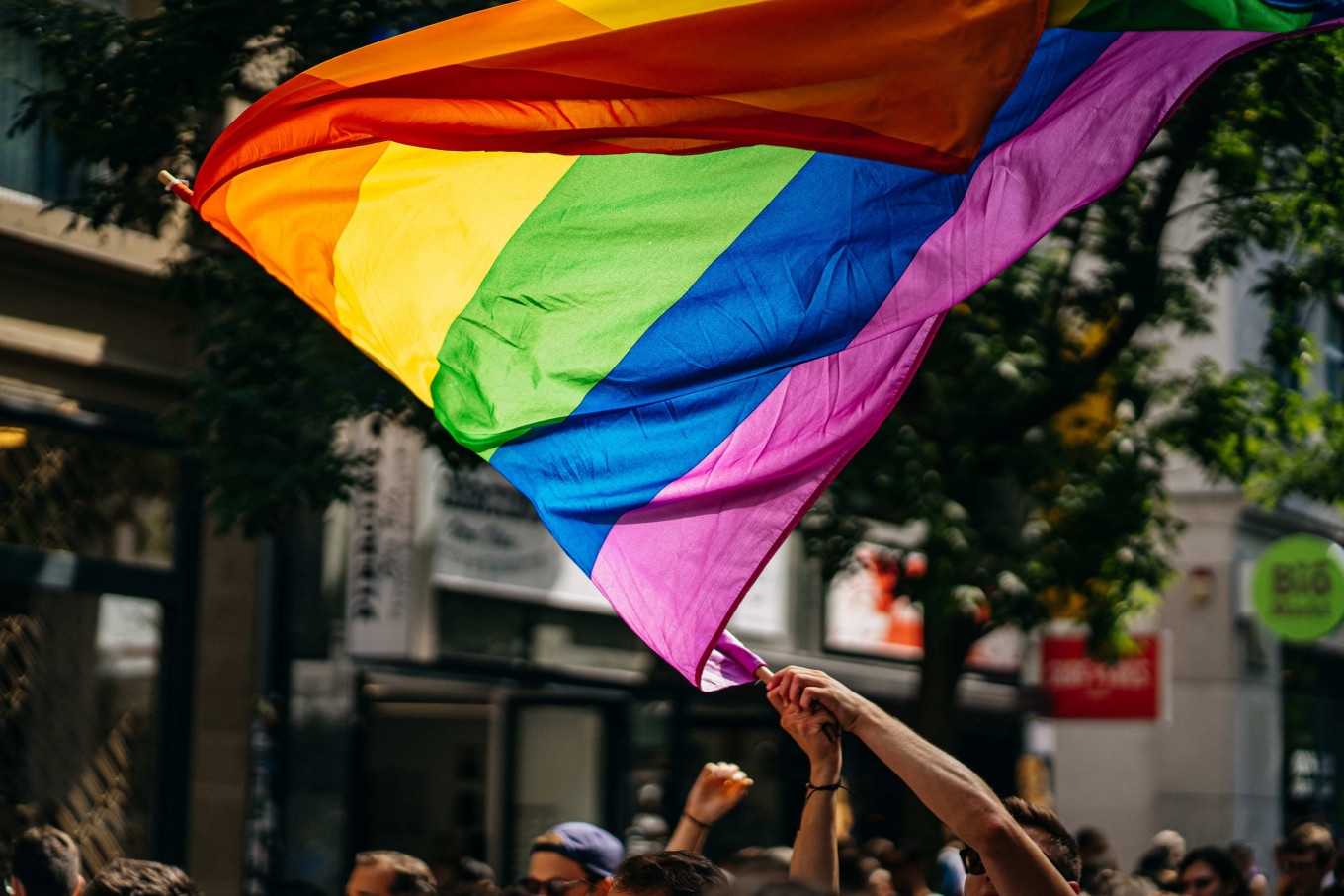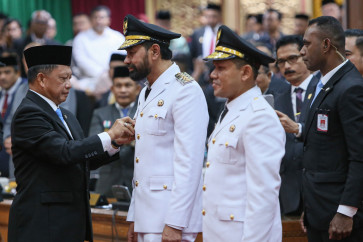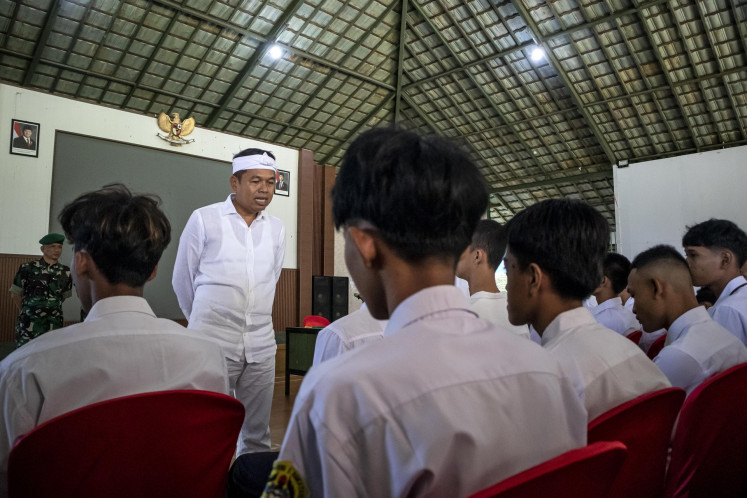Pride and prejudice: UK envoy summoned over LGBT flag
“Sometimes it is important to take a stand for what you think is right, even if disagreement between friends can be uncomfortable,” read a British Embassy Instagram caption.
Change text size
Gift Premium Articles
to Anyone

T
he government appears to have caved in to public pressure after the British Embassy in Jakarta raised a rainbow flag in honor of the lesbian, gay, bisexual and transgender (LGBT) community last week, eliciting backlash in conservative-leaning Indonesia.
The Foreign Ministry summoned British Ambassador to Indonesia Owen Jenkins on Monday to express its disapproval of the embassy’s decision to fly the flag at its Jakarta compound, a spokesman confirmed on Tuesday, even as some experts insist the embassy had not violated any regulations.
The flag was flown on May 17 to commemorate the International Day Against Homophobia, Biphobia and Transphobia (IDAHOBIT). The embassy also held an event involving local LGBT groups that day.
A photo of the flag was posted on the British Embassy’s Instagram account and garnered nearly 10,000 comments, predominantly of disapproval.
The photo’s caption reads: “Sometimes it is important to take a stand for what you think is right, even if disagreement between friends can be uncomfortable”.
The ensuing backlash came not only from Indonesia’s infamous netizens but also from grassroots Islamic organizations and members of the House of Representatives.
On Monday, the ministry announced it had summoned Jenkins to express its “concern and disappointment” over the matter.
“The ministry has deemed this action highly insensitive and asks the British Embassy, as well as all representatives of allied countries in Indonesia, to always honor the religious, social, cultural norms and beliefs of the Indonesian people,” the statement said.
Jenkins had “noted [Indonesia’s] disappointment” and would relay it to London, the statement continued.
A spokesperson for the British Embassy did not respond to requests for comment.
Limits of sovereignty
Sigit Riyanto, dean at the Gadjah Mada University School of Law, said on Tuesday that protests and notes of disapproval were common in diplomatic relations, noting that neither the flying of the LGBT flag at the embassy nor Retno’s decision to summon Jenkins was unlawful.
“It is written in Indonesian law that embassies and the residents of foreign ambassadors are excluded from the local jurisdiction. This means that those compounds are only obliged to the laws of the country they are representing,” Sigit said told The Jakarta Post.
Same-sex relationships are legal in the United Kingdom, and the country has allowed same-sex marriages since 2013. Transgender individuals were granted the right to acquire new birth certificates in 2004. Additionally, LGBT citizens are legally protected from discrimination, harassment and victimization at work under the UK’s 2010 Equality Act.
Sigit noted that under Indonesian law, it was only illegal to fly flags that “disrupted order”. One such flag, according to the government position, is the bintang kejora (Morning Star) often flown by Papuan separatist movements.
Foreign Ministry spokesman Teuku Faizasyah claimed on Tuesday that the British embassy had no legal grounds to fly the LGBT flag, citing Article 29 of the 1963 Vienna Convention on consular relations. The article states that foreign countries are allowed to fly their national flags and display national symbols for consular purposes within embassy compounds but does not mention other types of flags.
“According to the Vienna Convention, only national or official symbols, flags and attributes are considered rightful for display. This means that anything not considered a national flag is not allowed,” he said. “The UK, as a signatory of the convention, should be able to correct itself and avoid making the same mistake [again].”
Sigit noted, however, that there was no law prohibiting the display of LGBT symbols, limiting the government’s possible responses.
“Indonesia can only take diplomatic actions, such as issuing summons or protests. But if it is keen on taking further authoritative measures, it would need the permission of the foreign country in question. It would also depend on the intensity, complexity and urgency of the issue at hand,” Sigit said.
“The British embassy’s decision to fly the flag is simply a way for them to show support. It is a display of their acknowledgment that members of the LGBT group are human beings and will not be denied human rights.”
Furor in Indonesia
While same-sex marriage remains illegal in Indonesia, sexual relations between consenting adults over the age of 18 are permitted everywhere except in Aceh, where sharia (Islamic law) is enforced. Nonetheless, the LGBT community experiences widespread discrimination in the country, and some members have been arrested under an anti-pornography law.
A 2020 survey by the United States-based Pew Research Center found that 80 percent of Indonesians believed homosexuality “should not be accepted by society”.
Last week, Coordinating Political, Legal and Security Affairs Minister Mahfud MD called for an amendment to the Criminal Code to outlaw the LGBT identity, provoking outcry from human rights groups.
His comments were made in response to a separate controversy, in which popular Youtuber Dedy Corbuzier interviewed an openly gay couple and, after experiencing significant public and government backlash, took down the video.









